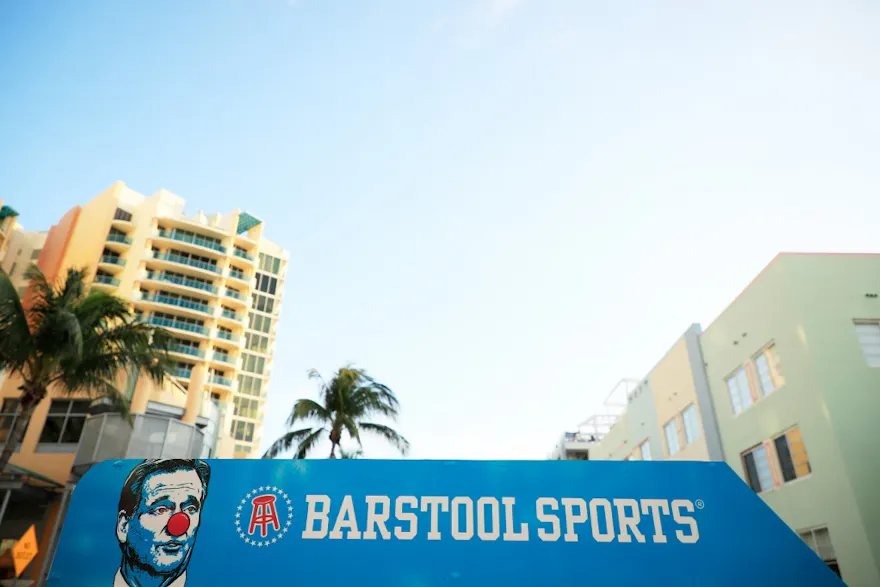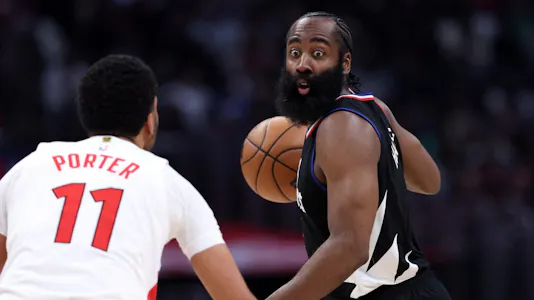What it is Going to Take to Be a US Legal Sports Betting Heavyweight

The US legal sports betting market has become one of the most intensely competitive industries in the world. Separating your sportsbook from the increasingly large pack is becoming paramount in gaining a market share in the 28+ US states that now host their own legal sports betting platform.
While name recognition in the industry still remains a huge factor - the Caesars of the world, along with the BetMGMs and the two DFS providers have an immediate advantage as traditional, recognizable names within the US legal sports betting space. But new strategies have emerged for sportsbooks either hoping to maintain their status as elite providers or trying to keep up with the big names in the industry. Let's break a few down.
Media Partnerships
With increased legalization and mainstreaming of the US legal sports betting industry has come a willingness to advertise sportsbook brands on national TV. With that has come more and more sportsbooks either partnering with or outright purchasing media outlets to heighten the exposure of their brands.
Sinclair Broadcast Group was bought and rebranded to the Bally's name. Other deals between media and sports betting companies include CBS/William Hill, Barstool Sports/Penn National, NBC/PointsBet, ESPN/Caesars, VSiN/BetMGM and Fubo TV who has started their own online gambling product.
Each of the partnered sports betting brands will receive extra attention on their partner station, in the form of commercials, mentions during sports betting broadcasts and a presence on all corresponding media entities.
Brand exposure is a key for sportsbooks' drive for market share - media partnerships are likely the most effective avenue to gain it, but it is likely the most expensive as well.
League and Team Partnerships
Since the 2018 Supreme Court decision to overturn its blanket ban on sports betting in 2018, previously reluctant professional sports teams and leagues have been partnering with sports betting providers in attempt to increase exposure and their "overall fan experience".
All four major North American sports have aligned with sportsbook brands - most have multiple official sports betting partners. Some of the most high-profile teams in the NFL, NBA, NHL, and MLB also have sports betting partnership deals that aim to get fans closer to the game and add something to their viewer experience.
Even the NCAA has welcomed the gambling industry – The iconic Fiesta Bowl is now sponsored by Caesars and a few individual teams have signed on with sportsbook partners.
Brand Ambassadors
Having a celebrity face representing your sportsbook has become a popular way to increase exposure. Sportsbook advertising is all over the airwaves currently - on TV, radio, and the host of internet outlets.
“There's some great entertainers that can drive brand awareness and that's wonderful,” Brian Musburger, CEO, and founder of Vegas Sports Information Network (VSiN) said. “Those deals make sense.”
Jaimie Foxx started the trend with BetMGM, who also has Wayne Gretzky, Barry Sanders, and Marshawn Lynch as brand ambassadors. Brett Favre was the spokesperson for BetAmerica's transition to the TwinSpires Sportsbook brand and Jerome Bettis has signed on with BetRivers.
The two DFS giant-turned massive sports betting providers have numerous brand ambassadors including Bryson DeChambeau. PointsBet signed Darrelle Revis to represent their sportsbook back in 2019 and the Australian-based book landed NFL legend and football analyst Drew Brees as spokesperson for their brand. More recently Shaqille O'Neill joined WynnBet as a Brand Ambassador.
The War for Market Share
During this time of the legal sports betting industry goldrush, providers are pulling out all the stops to keep their names relevant. “At the end of the day, it’s all about building our social following and brand awareness,” said Sharon Otterman, chief marketing officer for Caesars Sportsbook.
28 states plus Washington DC now have their own legal sports betting platform with a few more rumored to be on the way. For new sports betting providers, the onus is on them to create new and exciting advertising for their companies. The Big Guns have a head start and have created some compelling reasons, through advertising, to choose their brands.
Caesars CEO Tom Reeg said in August the company would spend $1 billion over the next year and a half on customer acquisition - huge money set aside to separate themselves from the pack.
It will take a lot for sports betting providers to make themselves distinct going forward, especially with the biggest names throwing billions at marketing. One main question remains - when is enough going to be enough?







